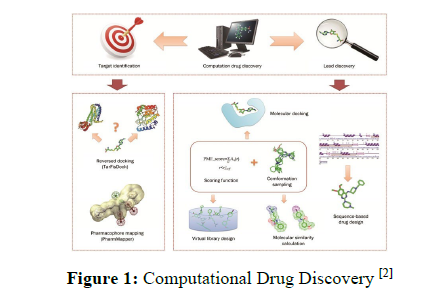Computational Drug Discovery: Integrating AI and Molecular Docking for Lead Optimization
Keywords:
- Rational drug design, Medicinal chemistry, CNS drug development, Blood–brain barrier, Fragment-based drug design, Prodrug strategies
Abstract
The landscape of pharmaceutical research and development has undergone a paradigm shift from the application of artificial intelligence (AI), molecular docking and the Internet of Things (IoT) to the drug discovery process, creating computational fast pathways. This new computational path way creates the opportunity to overcome the problems associated with the traditional drug development process in terms of cost, timing and low probability of success by gaining speed in lead identification, optimization and validation. AI engines like deep learning and generative algorithms uniquely and rapidly analyze large human curated pharmaceutical datasets that evaluate ADMET properties as well as identify new drug-like small molecules. Molecular docking is synergistically aligned with AI because it can simulate drug-target interactions and allows researchers to rank candidate compounds based on binding affinities to a target of interest. Additionally, IoT acts in concert with AI and molecular docking to collect real-time monitoring data to capture accurate experimental baseline data in a preclinical setting, furthering the ability to improve accuracy, reduce reproducibility errors and raise ethical standards to a higher level using intelligent laboratory automation and continuous physiological monitoring of animal models. All three approaches are viable disruptive technologies for translation drug development in a substantially faster manner and it will strengthen data driven decision making; generate much less redundancy, and accelerate regulatory transparency. While challenges remain related to data quality and infrastructure challenges associated with AI, IoT and molecular docking presents early signaling therefore there is a presiding change in the direction of drug development towards greater speed and precision at a significantly lower cost.






